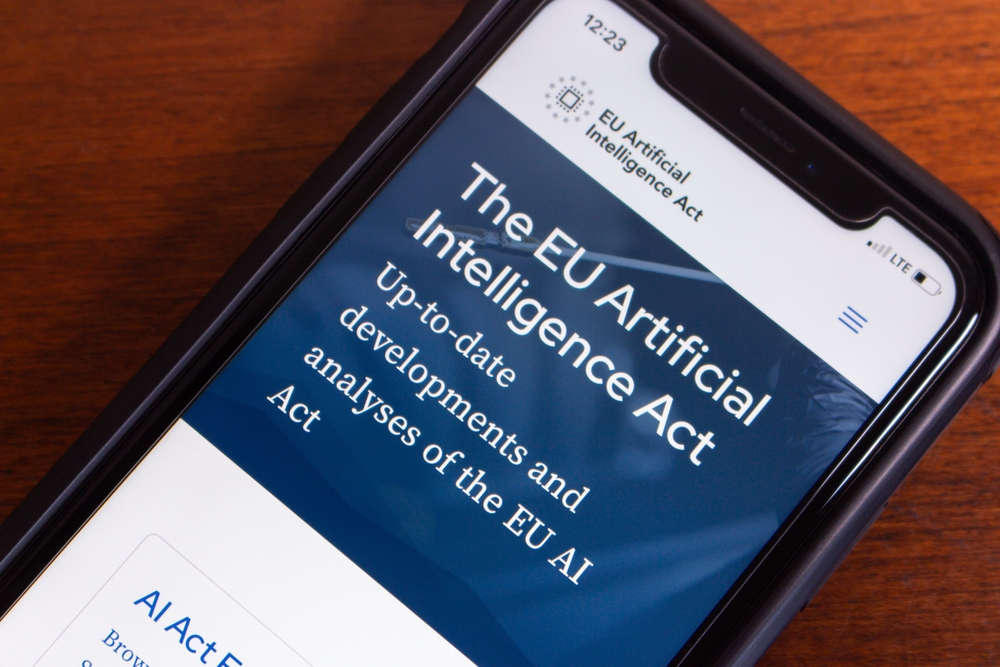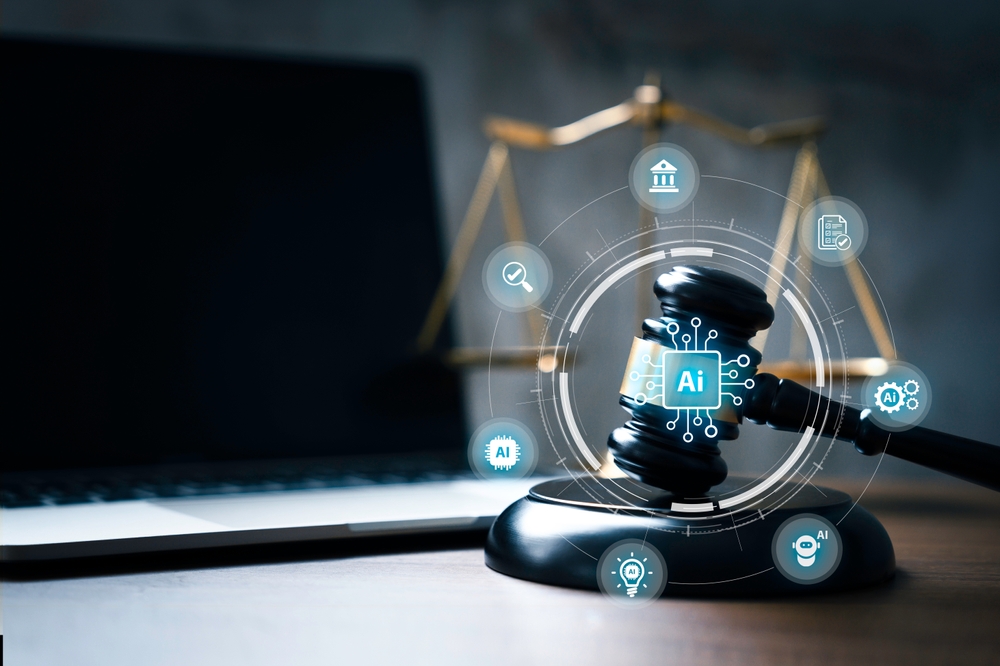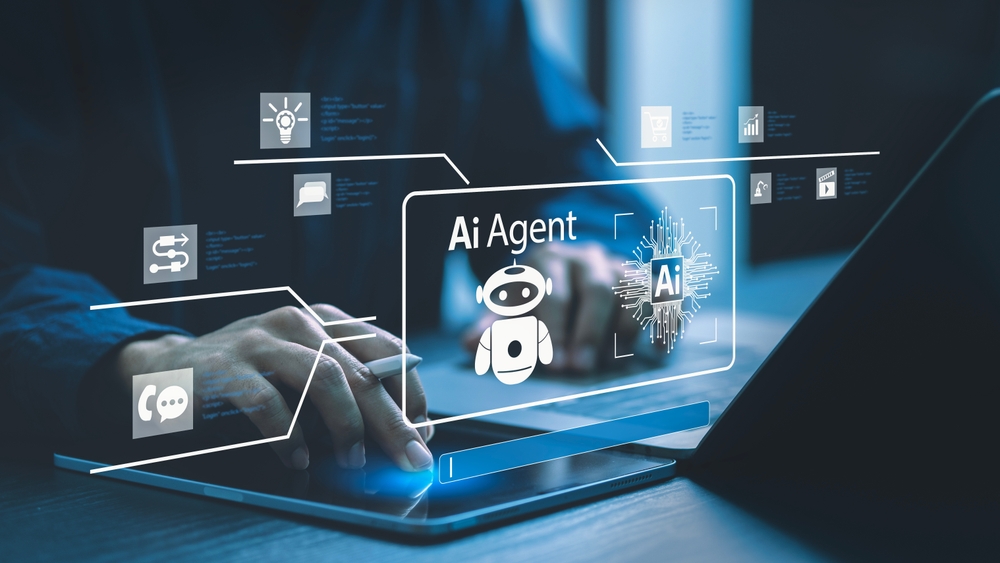New AI regulations aren’t just for tech companies—they’re coming straight for your workplace.

Big changes are brewing—and they’re coming for the way you work. Governments around the world are scrambling to catch up with artificial intelligence, and new laws are rolling out faster than most people can process. These aren’t just tech regulations tucked away in Silicon Valley. They’re rules that could impact your job, your privacy, your productivity tools, and even how your boss evaluates your performance.
If you’ve ever used AI at work—or if your company does—you need to pay attention. What seems helpful today could soon come with legal strings attached. From new hiring rules to limits on automation, the workplace as you know it is about to shift. And the sooner you know what’s coming, the better prepared you’ll be.
1. California’s “No Robo Bosses Act” is forcing companies to rethink AI in hiring.

California isn’t messing around when it comes to AI in the workplace. The “No Robo Bosses Act” makes it mandatory for companies to notify workers 30 days before using automated decision-making tools for hiring, firing, or promotions. Employers must also conduct regular audits to check for bias and discrimination. This isn’t just about fairness—it’s about accountability and human oversight in systems that were previously invisible, as reported in CNET. Companies are now scrambling to align their processes with this law, knowing that failure to comply could land them in serious trouble. By tightening the rules, California’s sending a clear message: you can’t let algorithms run wild when people’s livelihoods are at stake.
2. The EU’s AI Act is setting global standards for workplace AI regulation.

The EU just raised the bar—and everyone’s watching. Their AI Act classifies systems by risk level and slaps high-risk tools (like those used in hiring) with strict requirements. That means companies have to perform risk assessments, provide transparency, and accept full legal liability for outcomes. The stakes are huge: non-compliance could cost companies up to €35 million or 7% of global revenue. While it’s a European law, it’s already influencing how multinational companies approach AI globally, according to the European Parliament. No one wants to get caught on the wrong side of this legislation. If your workplace uses any kind of automated system, expect more disclosures—and more accountability—sooner than later.
3. Colorado’s new AI law mandates transparency in employment decisions.

Transparency isn’t optional anymore—at least not in Colorado. Their AI Act forces companies to come clean when using AI in employment decisions, like hiring or performance evaluations. Employers must not only inform candidates and workers but also conduct impact assessments to sniff out potential discrimination. It’s a smart move in a state that’s quickly becoming a tech hub. Regulators want to make sure innovation doesn’t steamroll fairness, as per White & Case LLP. As AI creeps deeper into HR departments, this kind of legislation could soon become a blueprint for other states. Colorado’s taken the lead in showing how transparency and ethics can actually fuel smarter tech—not slow it down.
4. New York City’s Local Law 144 enforces bias audits for AI hiring tools.

Companies hiring in NYC? They’re under a microscope now. Local Law 144 says if you’re using automated tools to screen applicants or promote employees, you need an independent audit—every single year. Oh, and you also have to notify applicants at least 10 days before using the tool. The goal? Stop hidden algorithmic bias before it shapes someone’s future. This law was one of the first of its kind, and it’s already inspiring similar policies across the country. If your job application experience suddenly feels more transparent, there’s a reason. NYC is putting ethics front and center in the AI conversation.
5. Illinois requires notification when AI influences employment decisions.

It’s no longer enough to quietly run resumes through AI in Illinois. State law now requires employers to let applicants know when artificial intelligence is part of the decision-making process. This helps job seekers understand how their data is being used—and gives them a chance to push back if something seems off. The legislation recognizes that algorithms aren’t always fair or neutral. It also opens the door for greater scrutiny of hiring practices, especially in industries that lean heavily on tech. As more states follow suit, the days of hidden machine vetting could soon be over. Transparency is becoming table stakes.
6. North Dakota’s new law makes AI-powered stalking a punishable offense.

Lawmakers in North Dakota have taken a bold stance by updating harassment laws to include the misuse of AI-powered robots for stalking. This move sends a clear message: digital tools aren’t a loophole for creepy behavior. By treating AI-assisted stalking like any other criminal offense, the state is recognizing that abuse can happen both online and off. Victims now have a clearer path to justice, and offenders can’t hide behind tech novelty. It’s a wake-up call that innovation needs boundaries—and those boundaries just got firmer in North Dakota.
7. New York mandates transparency in government use of AI decision-making tools.

When state agencies use algorithms to make decisions, New York wants the public to know. A recent law requires departments to disclose which automated tools they’re using and how they impact citizens. This means if your benefits, licenses, or services are being decided by AI, you’ll have access to that info. The law also makes sure AI systems can’t undermine union contracts or replace workers without negotiation. It’s a huge step in making government tech more accountable. And honestly, it’s refreshing to see legislation that protects both transparency and jobs in one move.
8. Connecticut’s AI bill introduces consumer protections and transparency.

Connecticut isn’t waiting around for federal regulation. Their new bill creates a dedicated AI division within the attorney general’s office to educate the public and enforce AI-related protections. If a company is using generative AI or other automated tools, they’ll have to disclose that clearly to consumers. This helps individuals understand what they’re interacting with—and who’s responsible if something goes wrong. The bill also opens the door for legal consequences if companies misuse or hide their AI systems. As AI becomes more embedded in daily life, states like Connecticut are making sure someone’s watching the watchers. And they’re doing it with teeth.
9. Utah’s AI Policy Act enforces disclosure and liability for AI use.

In Utah, AI doesn’t get a free pass anymore. The AI Policy Act holds companies responsible when they use generative AI in ways that could mislead or harm consumers. If you’re chatting with a bot, the company better tell you—or face the consequences. There’s even criminal liability if someone uses AI to commit fraud or other crimes. To top it off, the law created a new state office to oversee AI policy and make sure everyone’s playing fair. Utah might not be the first place you think of for tech leadership, but this law proves they’re not afraid to take the lead.
10. Tennessee’s ELVIS Act protects artists from AI impersonation.

Don’t even think about making a fake Elvis—Tennessee’s got that covered. The ELVIS Act, cleverly named, protects performers from unauthorized AI impersonations of their voice or likeness. This isn’t just about music legends—it’s about your rights to your identity in a world of deepfakes. The law sets a precedent for how states can stand up for artists in the face of rapidly advancing AI. As creative work becomes easier to replicate, this kind of legal protection is more crucial than ever. Tennessee has drawn a bold line: you can’t use AI to hijack someone’s legacy.
11. California’s new regulations limit AI surveillance in the workplace.

If your boss has been using AI to keep tabs on you, California’s new law might change that. Employers are now restricted from using AI-powered surveillance systems to monitor workers—especially when they’re off the clock. That means your phone, your movements, even your tone of voice are no longer fair game just because tech makes it possible. This legislation aims to restore a bit of sanity to work-life boundaries. It also signals a broader reckoning with how far is too far when it comes to employee monitoring. In short: AI can help you work smarter, not stalk harder.
